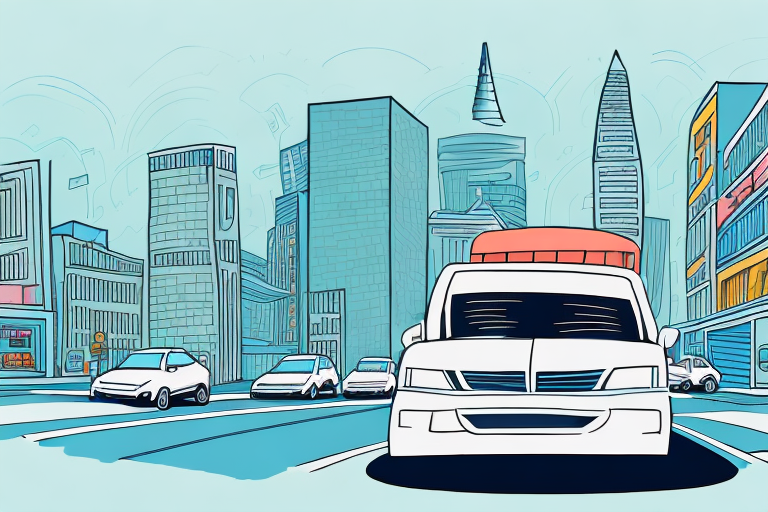Introduction to Becoming a Courier
Courier services are essential to modern business operations, ensuring the timely and secure delivery of goods to clients and customers. Whether you aim to work for a leading delivery company or start your own courier business, this comprehensive guide offers step-by-step instructions to help you succeed in the courier industry.
Key Qualifications and Skills
Essential Qualifications
While formal education isn't mandatory, certain qualifications can enhance your prospects as a courier:
- Valid Driver’s License: A clean driving license is typically required, especially if you plan to operate a vehicle for deliveries.
- Physical Fitness: The job often involves lifting and carrying packages of varying weights.
- Navigation Skills: Proficiency in using GPS systems and reading maps is crucial for efficient route planning.
Critical Skills
Developing the following skills can significantly improve your performance and reliability as a courier:
- Time Management: Efficiently managing your schedule to meet delivery deadlines.
- Customer Service: Communicating effectively and courteously with clients.
- Problem-Solving: Addressing and resolving issues that may arise during deliveries.
Training and Certifications
Recommended Training Programs
Although not always required, completing training programs can make you more competitive:
- International Association of Movers offers courses on packing and loading techniques.
- The Transportation Safety Institute provides courier safety certification courses.
Necessary Licenses
Depending on your location and the nature of the deliveries, you might need:
- Commercial Driver’s License (CDL): Required for operating larger vehicles.
- Hazardous Materials (HAZMAT) Endorsement: Necessary if transporting dangerous goods.
For more information on licensing requirements, visit your local Department of Motor Vehicles.
Building Experience
Starting with Established Courier Services
Gaining experience through established courier or delivery companies allows you to:
- Understand industry standards and best practices.
- Build a professional network.
- Enhance your skills in real-world scenarios.
Specializing in a Niche
Consider specializing in areas such as:
- Medical Deliveries: Requires knowledge of handling sensitive medical supplies.
- Legal Documents: Involves securing confidential legal paperwork.
- Perishable Goods: Necessitates understanding of temperature-controlled transport.
Specialization can lead to higher pay and reduced competition. According to the Bureau of Labor Statistics, specialized couriers can earn up to 20% more than general delivery drivers.
Obtaining Licenses and Certifications
Vehicle Operation Licenses
Ensure you have the necessary licenses to operate your delivery vehicle. This may include:
- CDL for larger vehicles.
- HAZMAT endorsements for transporting hazardous materials.
Preparation involves passing written and practical driving tests. Resources like the Driver’s Handbook can help you prepare.
Business Licenses and Permits
If you plan to run your own courier business, you may need additional licenses:
- Business License: Register your business with local authorities.
- Tax Registration: Obtain an Employer Identification Number (EIN) from the IRS.
- Operating Permits: Required for specific delivery areas or goods.
Visit the Small Business Administration for detailed information.
Starting Your Own Courier Business
Developing a Business Plan
A solid business plan outlines your business structure, target market, services, and financial projections. Key components include:
- Executive Summary
- Market Analysis
- Service Offerings
- Marketing Strategy
- Financial Plan
Choosing the Right Vehicle
Select a vehicle that suits your delivery needs:
- Cars: Ideal for small to medium-sized packages.
- Vans: Suitable for larger or bulkier items.
- Motorcycles/Bikes: Efficient for urban areas with heavy traffic.
Consider investing in GPS tracking and fleet management software to optimize your operations.
Marketing Your Services
Effective marketing strategies include:
- Building a professional website.
- Utilizing social media platforms.
- Advertising in local newspapers and online directories.
- Networking with local businesses to establish partnerships.
Develop a strong brand identity to differentiate your services from competitors.
Employment Opportunities
Working for Delivery Companies
Apply to reputable delivery companies such as UPS, FedEx, or local courier services. These companies often provide training and benefits, making them a good starting point for your career.
Independent Contracting
As an independent contractor, you have the flexibility to set your own schedule and choose your clients. Platforms like ShipScience Freelance connect couriers with businesses in need of on-demand delivery services.
Enhancing Communication and Customer Service Skills
Effective Communication
Clear and professional communication with clients and dispatchers is essential. Practice active listening, provide timely updates, and respond promptly to inquiries.
Customer Service Excellence
Deliver exceptional customer service by being courteous, respectful, and accommodating. Address any issues or complaints with empathy and efficiency to build a positive reputation.
Consider taking courses such as Customer Service Excellence to refine your skills.
Safety and Efficiency on the Road
Safe Driving Practices
Adhere to all traffic laws, avoid distractions, and maintain a safe speed to prevent accidents. Regularly check your vehicle’s condition to ensure it is roadworthy.
Emergency Preparedness
Equip your vehicle with essential supplies like a first aid kit, spare tire, and tools. Familiarize yourself with emergency procedures to handle unexpected situations effectively.
Time Management Strategies
Planning and Scheduling
Use route planning tools and scheduling software to optimize your delivery routes, reducing travel time and fuel costs. Prioritize deliveries based on urgency and location.
Balancing Work and Rest
Avoid burnout by scheduling regular breaks and ensuring you get sufficient rest. A well-rested courier is more productive and less prone to errors.
Career Growth and Future Trends
Opportunities for Advancement
With experience, you can advance to supervisory roles, fleet management, or specialize in high-demand delivery niches. Continuous learning and professional development are key to career progression.
Emerging Technologies
The courier industry is evolving with the integration of technologies such as drones and autonomous vehicles. Staying informed about these trends can provide new opportunities for growth and innovation.
According to a report by ShipScience Industry Research, the adoption of autonomous delivery vehicles is expected to increase by 30% over the next five years, revolutionizing the delivery landscape.
Common Mistakes to Avoid
- Punctuality Issues: Consistently running late can damage your reputation and lead to job loss.
- Poor Communication: Failing to keep clients informed can result in dissatisfaction and loss of business.
- Neglecting Vehicle Maintenance: Ignoring regular maintenance can lead to breakdowns and delays.
- Inadequate Planning: Poor route planning can increase delivery times and operational costs.
Learn from these common pitfalls to establish yourself as a reliable and professional courier.
The Future of the Courier Industry
The courier industry is poised for significant growth, driven by the expansion of e-commerce and the demand for rapid delivery services. Key trends shaping the future include:
- Increased E-Commerce Integration: The rise of online shopping continues to boost demand for courier services.
- Technological Advancements: Innovations like drone deliveries and AI-powered route optimization are transforming the industry.
- Sustainability Initiatives: There is a growing emphasis on eco-friendly delivery methods, such as electric vehicles.
Staying abreast of these trends and adapting to changes will ensure long-term success in the courier industry. For more insights, refer to the latest studies by the Industry Future Report.
By following this guide and continuously improving your skills, you can build a successful and fulfilling career as a courier in one of today's most dynamic industries.




















